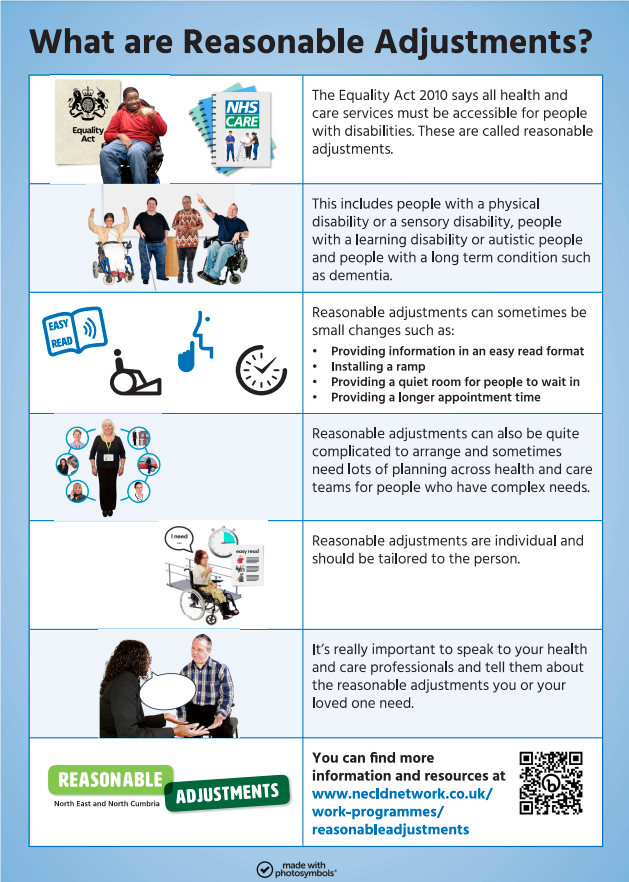Accessibility and Reasonable Adjustments
We can make changes for you called 'Reasonable Adjustments' to help you access our services
We can do this by making changes, often quite small, to the way that we care for you. These changes are called reasonable adjustments.
Reasonable adjustments can be things like:
- making sure there is good access for people who use a wheelchair
- providing plain English or easy read appointment letters
- giving someone a priority appointment if they find it difficult waiting in waiting room
- offering a longer appointment if someone needs more time with a doctor or nurse to make sure they understand the information they are given
- having a quiet space available for people waiting for their appointment
- making sure there is a hearing loop system in consultation rooms
- making sure we fill in information about the appointment if you have a hospital or health and care passport
- Access to a British Sign Language (BSL) interpreter to support at appointments or an internet video-link that could be used with BSL interpretation remotely
- Access to language interpreter services if English isn't your preferred language.
- using a communication chart to support a person with dementia during an appointment
Reasonable adjustments are a legal requirement to make sure health services are accessible to all disabled people. Please watch the film below to find out how a simple reasonable adjustment can make a big difference to a person’s experience of quality and access to care.

The Equality Act (2010) states all organisations including health and social care, such as hospitals and GP surgeries must take steps to remove the barriers individuals face because of disability.
The NHS must make it as easy for disabled people to use health services as it is for people who are not disabled.
Disability is one of the nine protected characteristics under the Equality Act 2010. The Act says that a person has a disability if they have a “physical or mental impairment”, and the impairment has a “substantial and long-term adverse effect on [their] ability to carry out normal day-to-day activities.”
Page created: 22 March 2022
